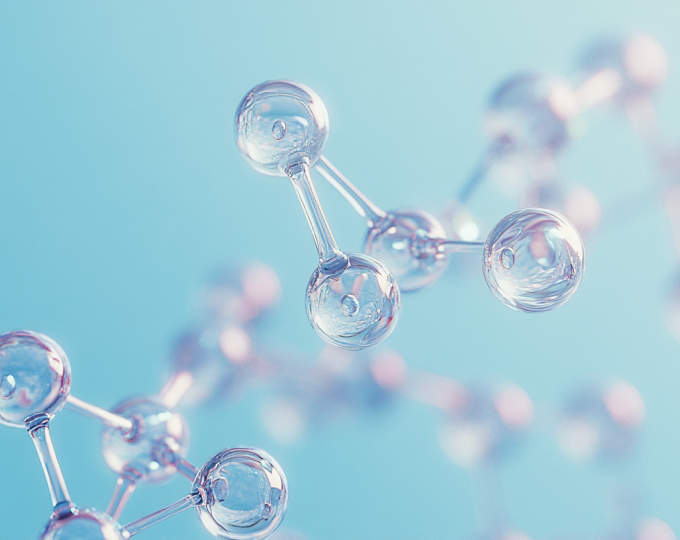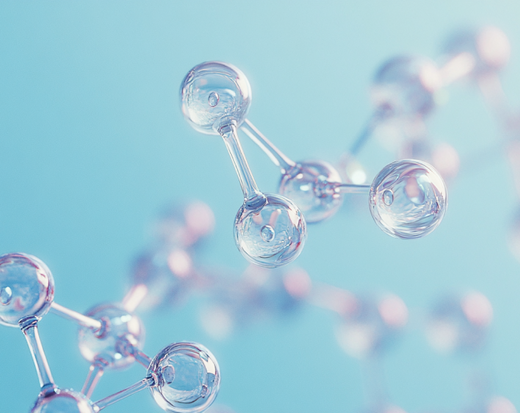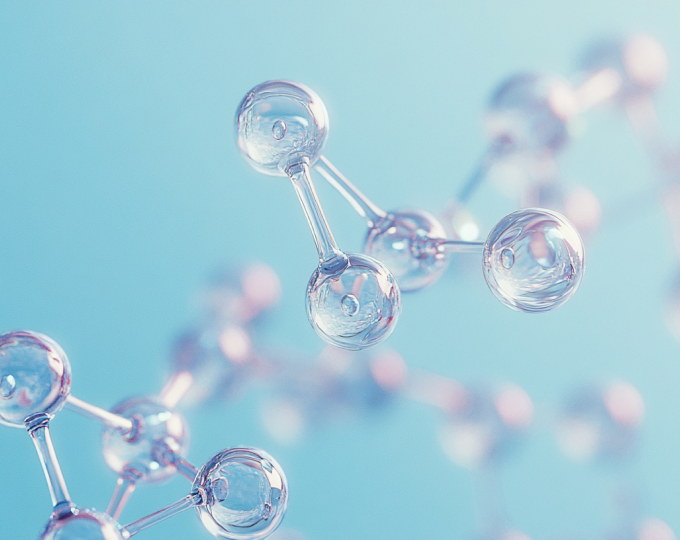Themen dieses Blogartikels:
Table of contents
- Definition: What is Methylsulfonylmethane?
- What functions does MSM have?
- What makes MSM unique?
- How much MSM do you need per day?
- When do you especially need MSM?
- How does an MSM deficiency arise and how does it manifest itself?
- What happens if you overdose on MSM?
- Which foods contain particularly high levels of MSM?
- MSM supplements
- Delivery and storage
- Bibliography & Sources
Definition: What is MSM?
MSM is the abbreviation for methylsulfonylmethane. The substance is also known as dimethylsulfone. It is an organic sulfur compound that occurs in many animal and plant organisms. In its pure form, MSM forms white, odorless crystals that taste slightly bitter.¹ MSM is available as a dietary supplement in the form of powder, hard capsules or tablets for humans and animals, especially horses.
What functions does MSM have?
MSM is a sulfur-containing compound that contains methyl groups. MSM can therefore serve the body as a valuable source of sulfur. Sulfur is an essential mineral that performs important functions in the body and is found in various hormones and enzymes, for example. Sulfur-containing amino acids are of key importance for healthy tendons, bones and cartilage, among other things.² After exercise, sulfur is also involved in the regeneration of muscles.³
In addition to joint health, the substance plays an important role in skin health: care products containing sulfur are said to have a positive effect on the skin, for example they can be used against skin imperfections such as acne.⁴ The mineral is also said to have an anti-aging effect, for example it is said to reduce wrinkles. In studies conducted outside the organism, MSM was also found to have anti-inflammatory, antioxidant, anti-carcinogenic and bone metabolism stimulating effects.⁵
What makes MSM unique?
MSM, which contains sulfur, is one way to supply the body with sulfur. It is a natural and highly bioavailable form of this vital mineral.⁶ Sulfur helps your body bind and eliminate toxins. This is because the substance is contained in various proteins and their components such as cysteine, methionine, taurine and glutathione, which are involved in the body's detoxification process.
How much MSM do you need per day?
There is no recommended daily intake for MSM or sulfur. The sulfur-containing amino acids methionine and cysteine are found in many foods. And methylsulfonylmethane (MSM) is also found in many plant and animal foods.⁷
When do you especially need MSM?
So far, MSM is offered as a dietary supplement, but not as a medicine. The number of studies on the positive effects of MSM is still quite limited. However, many alternative medicine practitioners and naturopaths use the sulfur donor MSM for detoxification - in the hope that the substance could help toxic substances leave the body.⁸
The substance's properties are also said to have positive effects on various diseases such as osteoarthritis, diabetes mellitus, sports injuries and elevated blood lipid levels. However, these have so far only been shown in cell cultures and in animal experiments, but not in meaningful clinical studies.⁹ The effects of MSM are currently being further researched and, if they are scientifically confirmed, methylsulfonylmethane could also be used as a medication in the future.
How does an MSM deficiency arise and how does it manifest itself?
In the western world, there is generally no need to worry about a sulfur deficiency, as we consume enough protein and thus sufficient sulfur-containing amino acids through our diet. However, vegan athletes have an increased need, as plant-based foods contain fewer sulfur-containing amino acids than animal foods. Care should also be taken to ensure an adequate supply in children, in cases of advanced illness, or in cases of a low-protein diet.¹⁰
Since sulphur is a vital mineral, a deficiency can have far-reaching consequences – from brittle hair to joint and muscle problems to circulatory problems and cataracts.¹¹
What happens if you overdose on MSM?
According to the Federal Office of Consumer Protection and Food Safety, the daily intake of dietary supplements in tablet form must not exceed 50 mg of methylsulfonylmethane, based on a recommended daily intake of one tablet.¹² Children and adolescents, pregnant and breastfeeding women, and patients being treated with coumarin anticoagulants should refrain from taking the supplement.¹³ Little is known about possible side effects and the consequences of overdoses. However, side effects in the form of gastrointestinal problems, skin irritations and intolerance reactions have been observed after ingestion.¹⁴
Which foods contain particularly high levels of MSM?
The organic sulphur compound MSM is found in small amounts in animal foods such as:¹⁵
- eggs
- dairy products
- fish
- meat
- coffee
- nuts
- vegetables containing sulphur (leeks, broccoli, onions)
However, these amounts are often not sufficient to achieve the full health benefits. Many therefore choose to supplement MSM in the form of capsules or liquid to increase its effectiveness and achieve the desired dose. However, attention should always be paid to the safety of use, especially with regard to possible additives that may be contained in some products.
MSM Supplements
As MSM is only found in small amounts in food, it can be useful to supplement MSM in order to achieve the desired intake and benefit from the possible advantages of the sulphur compound. Food supplements offer a practical way of supplementing MSM in a targeted manner and in the desired dosage.
Delivery and storage
MSM should be stored in a dry and cool environment to maintain its quality. Proper storage will ensure that the product retains its effectiveness and it is also important to purchase MSM from a trusted source to ensure that the product is safe and meets the required quality standards.
This encyclopedia entry is based on carefully researched sources:
Bibliography & Sources
- chemie.de/lexikon/Dimethylsulfon.html
- gesundheit.de/ernaehrung/naehrstoffe/mineralstoffe/schwefel-id213359/
- mikronährstoffe.de/mineralstoffe/methylsulfonylmethan-msm/
- onmeda.de/therapie/active substances/schwefel-id203938/
- uniklinik-freiburg.de/fileadmin/mediapool/08_institute/rechtsmedizin/pdf/Addenda/Methylsulfonylmethan.pdf
- myfairtrade.com/ratgeber/msm-effekt.html
- klartext-futterrgaenzung.de/wissen/lebensmittel/futterrgaenzmittel/msm-hilft-die-schwefeltherapie-bei-arthrose-13829
- cara.care/de/treatment/alternative/msm-criticism/
- gesundheit.de/ernaehrung/naehrstoffe/mineralstoffe/schwefel-id213359/
- uniklinik-freiburg.de/fileadmin/mediapool/08_institute/rechtsmedizin/pdf/Addenda/Methylsulfonylmethan.pdf
- infothek-gesundheit.de/schwefel-funktion-und-symptome-bei-schwefellack/
- bvl.bund.de/DE/Arbeitsbereich/01_Lebensmittel/04_Antragstellerunternehmen/07_Allgemeinverfuegungen/01_Archiv_Uebersicht/07_Nahrungsergaenzmittel/lm_av_022_01.pdf?__blob=publicationFile&v=4
- cara.care/de/treatment/alternative/msm-criticism/
- klartext-futterrgaenzung.de/wissen/lebensmittel/futterrgaenzmittel/msm-hilft-die-schwefeltherapie-bei-arthrose-13829
- chemie.de/lexikon/Dimethylsulfon.html























